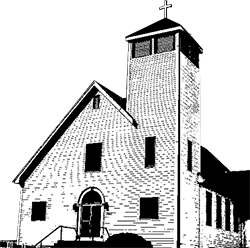St. Andrew’s Church Covenant of “Holy Manners”
Working Together as Church Leaders & Volunteers – Our Management Style
Introduction:
This covenant or agreement, is an adopted policy about how we want to work together to manage church activities and church business. It concerns a desire to develop a positive working atmosphere within the parish, including values of transparency, courtesy, clear communication and pastoral care. The covenant will address such subjects as participating in a group, how to handle disagreements, the importance of listening to one another, and the idea of making decisions by consensus.
The idea for a covenant originated from Bishop Sue Moxley, who drew it to the attention of the archdeacons. A document was produced at the 2011 Synod meeting in Halifax. Bishop Sue became aware of the idea from the Diocese of Huron (London ON), where the covenant originated as a solution to tensions in the congregation that were restricting the church’s ability to move forward. The covenant was called “Holy Manners”.
The Covenant:
Holy Manners Covenant Document
Adopted: at the 8 September 2011 parish council meeting
We, the people of St. Andrew’s Church, seek to live in a caring, loving community as Christ teaches us. We make a covenant with one another prayerfully to live out the following principles:
- We promise to treat one another with the respect and dignity with which we would like to be treated.
- We promise to communicate with an open mind and heart; including using email and telephone. We intend to include everyone who needs to know in our communication.
- We promise to recognize a diversity of individuals and ideas among and within our congregation.
- We promise to keep differences and conflicts in perspective by praying to God.
- We promise to summon the courage to work with those with whom we have conflicts.
- We promise to be understanding, to forgive, and to seek reconciliation in times of disagreement.
- We promise to respect the boundaries of others – such as time, space and feelings.
- We will strive to sincerely welcome all people equally.
- We will make decisions by consensus, but only after all participants have voiced their opinions.
- Once a consensus has been reached, we promise to move forward, not hold grudges and to surrender to the majority view.
- Last but not least, we promise to keep life in perspective by preserving a sense of humour.
Putting the Covenant of Holy Manners into Practice:
In any group of people, there will be differences and disagreements. What matters is how we handle these differences and disagreements, and how we treat others with whom we disagree. The Covenant of Holy Manners sets out our ideal. The following shows some healthy ways that we can deal with these times in our church life.
Person to Person:
- Pray for guidance, wisdom, courage and love for ourselves and anyone else who may have a different point of view.
- Clarify the issue before raising a concern:
- Take a cooling off period if required.
- Consider whether it’s important enough to raise a concern. Sometimes we need to move on and forgive if necessary.
- If we are still dissatisfied, speak directly with the person who has the ability to directly address the issue.
- In the event the issue remains unresolved, invite a wise third person to participate in the discussion as a mediator.
- Do not expect others to resolve it without you. Do not draw people in who are not involved. Do not gossip behind people’s backs.
- Use the governance structure of the church.
- Contact a warden if you have an idea. Contact a congregational warden if it just affects one’s local congregation. Contact a parish warden if it affects more than one congregation.
- Contact appropriate clergy for pastoral matters. (Clergy will respect healthy privacy, but not participate in unhealthy secrecy).
- Contact the archdeacon for broader pastoral matters.
- Be clear whether you are dealing with a question or a concern.
- Use good listening techniques.
- As much as possible use six days of the week for church business, and keep worship and fellowship a priority for Sunday.
- Respect the personal space of others.
- If you have a concern or an idea, be sure to identify yourself.
In Groups:
- Actively participate in meetings at which decisions are made. If it’s not appropriate for the whole group, do not save your comments for a few people in the parking lot after the meeting is finished.
- Observe the direction from the chair. The job of the chair is to help identify the agenda and then move through it, discerning and deciding together by consensus.
- Use “I” statements; for example: “I think……” not “Some people think……”
- Speak your personal opinion during discussions, but once the group has made its decision, support it.
- Groups should respond to inquiries or concerns in a timely & respectful manner.
- If you are responsible for a job on behalf of a group, follow through in a timely manner.
- Make an effort to communicate clearly in a variety of ways in the parish (For example: an announcement after church services, at an A.C.W. meeting or in the church bulletin).
- Do not engage in a side conversation when someone is speaking to the meeting.
